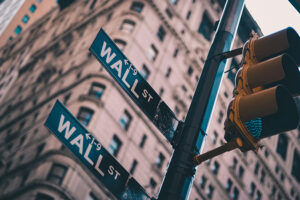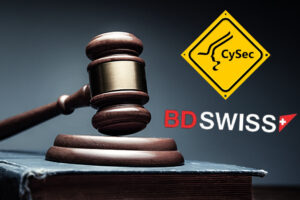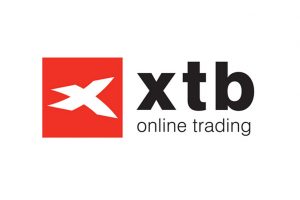When to switch to a real account?
Real account? 98% of currency investors start their adventure with a demo account, where it has virtual funds at its disposal. Knowledge about the platform itself or even technical and fundamental analysis is still very small. Gradually, by gaining knowledge and learning about the transaction application, you gain self-confidence and finally want to start earning real money in the real market.
When should I switch to a real account?
First of all, you must be mentally ready for it. If you have no experience in trading real money on other capital markets then 100% ready you will never be. But somehow you have to learn this so the basis is readiness to move to real funds. Panic fear of losing a real deposit will only act destructively on the account or even prevent the conclusion of transactions. This can not take place.
Knowledge of technical issues related to the market in which you will invest is another important factor. Not only knowledge of the definition but also the mechanism of action and how to calculate such things as siphon, security deposit, flight, swap, pip or Stop-out Level, they must be very well known to you.
READ NECESSARY: How to protect your deposit with a broker - useful tips
You also need to be able to read the macroeconomic calendar of events, learn the most important economic indicators to know what to look for and what is irrelevant. The same with the issues of the currency market itself: base currency, quoted currency, majors, Crossy, swap, when the trading sessions on the major financial markets begin - you need to have everything at your fingertips so as not to be surprised by the market.
The trading platform you will be using must meet your requirements, but at the same time you must be able to navigate it fairly well. You don't have to know it right away, but knowing the relevant functions and finding them relatively quickly will allow you to react properly in a stressful situation.
No strategy, no move
If you don't have an investment strategy then you should have one. If you do not want to have it, you should not switch to a real account. It sounds brutal but in such a situation it is better to spend these funds on pleasure than invest in currencies. Strategy is the foundation on which the results achieved will depend. By strategy I do not mean only guidelines when to buy, when to sell and when to close a position. These are also variants for determining orders Stop Loss, responding to specific market conditions, defining the investment's time horizon, determining the percentage of risk capital and maximum daily or even monthly depletion. It is equally important to set a goal that we will strive for in different perspectives.
Earning on a demo
Should regular profits on the demo be synonymous with switching to a real account? Not necessarily. If other conditions are not met, I would advise you to refrain from such a decision anyway. On the other hand, if we do not achieve satisfactory results on the demo, it means that something is wrong and you have to ask yourself what the result is. For lack of a plan, preparation or maybe we do not take it too seriously, because in the end it's just a virtual cash register? In such a situation I would be tempted to try my hand with a real but small amount.
How many sit on a demo account?
Playing with virtual funds for too long can lead to the fact that it will be more and more difficult for us to make a decision about paying real money into Forex . We will try to get everything to the last button, while after moving to the real world everything can fall apart. It will never be perfect, because the psyche will fail. However, learning in the real market, with real means, among real emotions will certainly be much more effective.
READ ALSO: Forex brokers - list of offers 2020
The choice of the deposit size
It is true that even the smallest real deposit is better than a virtual one. However, a very small deposit will still be very close to the demo. If you start trading with $ 5 (some brokers have such a minimum threshold), losing all your capital will not cause any emotions, and you have bankrupted. The size of the first deposit should be chosen so that in the event of a loss of a significant part of it, you do not suffer from a mental breakdown. At the same time, you may feel the possible consequences of the error in order to learn from them. The first deposit can even be thought of as "payment for a course in real trading." His total loss should be acceptable to the investor as long as he is going to learn from it.
Increase the deposit
After passing all the "tests" on the first one real bill, you can think about increasing the commitment of funds on the account. A large sum of money, which can be a large part of our savings, will certainly make us more careful, but the game will also be more stressful. So why do this? It is difficult to generate a noticeable profit from a small amount, i.e. funds for which we will be able to support ourselves or make bigger dreams come true. If your first deposit is PLN 5, even with a spectacular rate of return of 000%, it will still not be enough. At the same time, by setting your target at 100% per annum, you increase the risk of losing all instead of earning anything. Rational specification of the target is extremely important. A larger deposit will allow us to fix






















![Forex Club – Tax 9 – Settle tax on a foreign broker [Download the Application] Forex Club - Tax 9](https://forexclub.pl/wp-content/uploads/2024/02/Forex-Club-Podatek-9-184x120.jpg?v=1709046278)
![Trading View platform – solutions tailored to the needs of traders [Review] trading view review](https://forexclub.pl/wp-content/uploads/2024/03/trading-view-recenzja-184x120.jpg?v=1709558918)
![How to connect your FP Markets account to the Trading View platform [Guide] fp markets trading view](https://forexclub.pl/wp-content/uploads/2024/02/fp-markets-trading-view-184x120.jpg?v=1708677291)
![How to invest in ChatGPT and AI? Stocks and ETFs [Guide] how to invest in chatgpt and artificial intelligence](https://forexclub.pl/wp-content/uploads/2023/02/jak-inwestowac-w-chatgpt-i-sztuczna-inteligencje-184x120.jpg?v=1676364263)



![Izabela Górecka – “Success on the market depends not only on knowledge, but also on emotional stability” [Interview] Izabela Górecka - interview](https://forexclub.pl/wp-content/uploads/2024/04/Izabela-Gorecka-wywiad-184x120.jpg?v=1713870578)
![WeWork – the anatomy of the collapse of a company valued at $47 billion [WeWork, part II] wework bankruptcy story](https://forexclub.pl/wp-content/uploads/2024/04/wework-bankructwo-historia-184x120.jpg?v=1711729561)
![Adam Neumann – the man who screwed up Softbank [WeWork, part AND] adam neumann wework](https://forexclub.pl/wp-content/uploads/2024/04/adam-neumann-wework-184x120.jpg?v=1711728724)





![The most common mistakes of a beginner trader - Mr Yogi [VIDEO] Scalping - The most common mistakes of a beginner trader - VIDEO](https://forexclub.pl/wp-content/uploads/2024/03/Scalping-Najczestsze-bledy-poczatkujacego-tradera-VIDEO-184x120.jpg?v=1711601376)
![Learning patience: No position is also a position - Mr Yogi [VIDEO] Scalping - Learning patience - No position is also a position - VIDEO](https://forexclub.pl/wp-content/uploads/2024/03/Scalping-Nauka-cierpliwosci-Brak-pozycji-to-tez-pozycja-VIDEO-184x120.jpg?v=1710999249)
![When to exit a position and how to minimize losses - Mr Yogi [VIDEO] Scalping - When to exit a position and how to minimize losses - VIDEO](https://forexclub.pl/wp-content/uploads/2024/03/Scalping-Kiedy-wyjsc-z-pozycji-i-jak-minimalizowac-straty-VIDEO-184x120.jpg?v=1710336731)


















